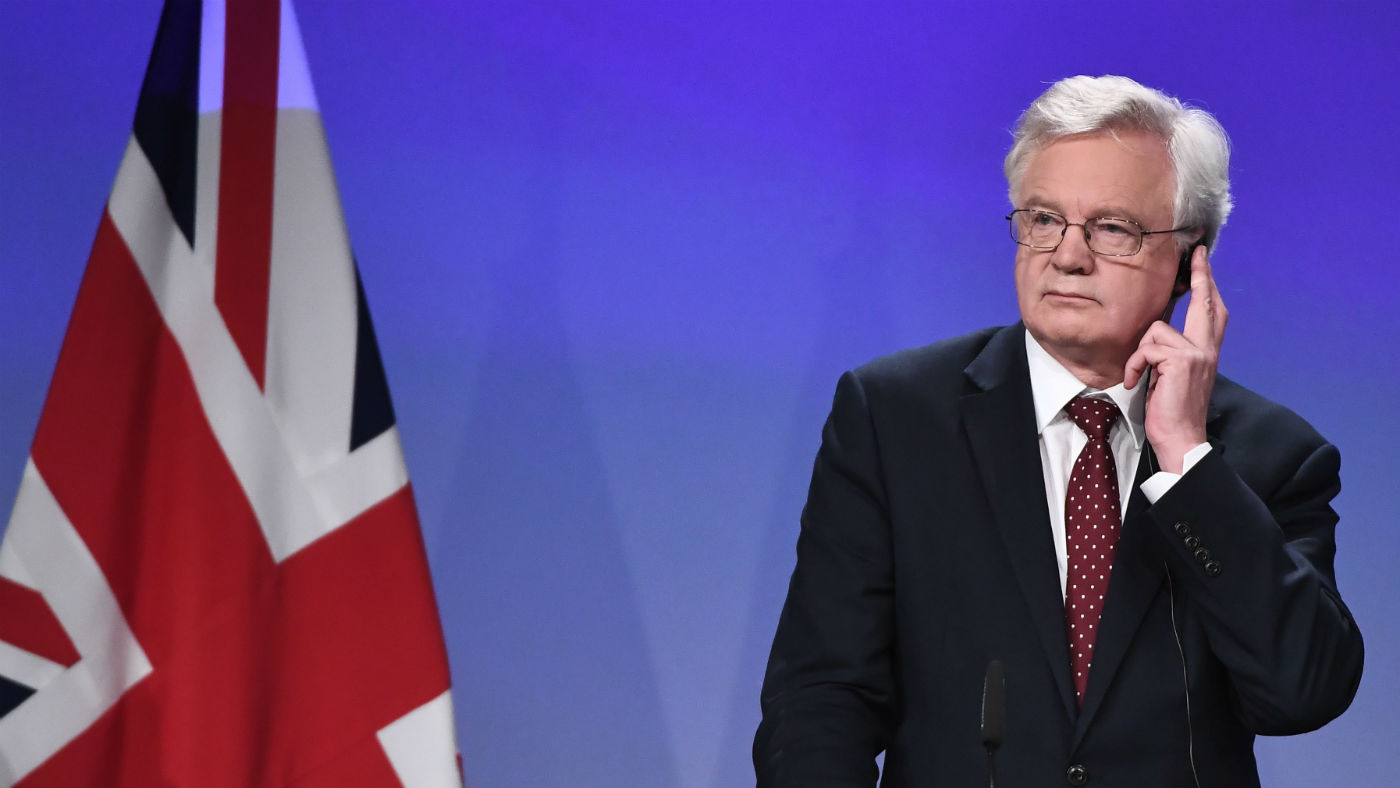What botched White Paper translations say about Brexit priorities
Bad and absent foreign language documents reflect how poorly UK understands EU culture

A free daily email with the biggest news stories of the day – and the best features from TheWeek.com
You are now subscribed
Your newsletter sign-up was successful
The Government has been widely ridiculed for its botched translations of Theresa May’s Brexit White Paper on a future trade relationship with the EU.
The executive summary of the so-called “Chequers’ plan” has been hastily translated into 22 European language, while the full 100-page document was originally published only in English and Welsh, despite the latter not being an official EU language.
The move to provide translations of Theresa May’s Brexit plan “is being seen in Brussels as an attempt to bypass the European Commission and negotiate directly with member states” reports The Independent.
The Week
Escape your echo chamber. Get the facts behind the news, plus analysis from multiple perspectives.

Sign up for The Week's Free Newsletters
From our morning news briefing to a weekly Good News Newsletter, get the best of The Week delivered directly to your inbox.
From our morning news briefing to a weekly Good News Newsletter, get the best of The Week delivered directly to your inbox.
But the approach appears to have backfired after claims that the German translation was “unreadable” and written in strange “archaic” language featuring made-up compound words.
Other basic errors include the misspelling of Estonia and Finland in the Estonian and Finnish versions, and unusual French inflections which presented Brexit as a moral good.
“Basic errors and amateurish negligence has not only wasted an opportunity to win hearts and minds on the Continent but will confirm Brussels’ worst suspicions about the Government” says The Daily Telegraph.
“It exposes, once again, how poorly the Department for Exiting the European Union understands Brussels, its priorities and its culture,” the paper added.
A free daily email with the biggest news stories of the day – and the best features from TheWeek.com
The EU spends a huge amount of money translating every official document into its 24 official languages - an expenditure that is often highlighted by Eurosceptics as indicative of the waste and bureaucracy that besets the EU.
Yet the dodgy translation could have a more prosaic explanation. The lack of foreign language skills in Whitehall “has been a perennial issue for the civil service”, says the Independent.
An inquiry by the House of Commons foreign affairs committee warned that only 38% of “speaker slots” at the Foreign Office were filled by someone who could speak the language to the specified level.
The former British ambassador to Moscow, Sir Tony Brenton, said Britain had been left in the dark during the 2015 Ukraine crisis because the Foreign Office lacked enough Russian speakers to comprehend information about the situation.
-
 How to Get to Heaven from Belfast: a ‘highly entertaining ride’
How to Get to Heaven from Belfast: a ‘highly entertaining ride’The Week Recommends Mystery-comedy from the creator of Derry Girls should be ‘your new binge-watch’
-
 The 8 best TV shows of the 1960s
The 8 best TV shows of the 1960sThe standout shows of this decade take viewers from outer space to the Wild West
-
 Microdramas are booming
Microdramas are boomingUnder the radar Scroll to watch a whole movie
-
 How corrupt is the UK?
How corrupt is the UK?The Explainer Decline in standards ‘risks becoming a defining feature of our political culture’ as Britain falls to lowest ever score on global index
-
 The high street: Britain’s next political battleground?
The high street: Britain’s next political battleground?In the Spotlight Mass closure of shops and influx of organised crime are fuelling voter anger, and offer an opening for Reform UK
-
 EU-Mercosur mega trade deal: 25 years in the making
EU-Mercosur mega trade deal: 25 years in the makingThe Explainer Despite opposition from France and Ireland among others, the ‘significant’ agreement with the South American bloc is set to finally go ahead
-
 Biggest political break-ups and make-ups of 2025
Biggest political break-ups and make-ups of 2025The Explainer From Trump and Musk to the UK and the EU, Christmas wouldn’t be Christmas without a round-up of the year’s relationship drama
-
 Who is paying for Europe’s €90bn Ukraine loan?
Who is paying for Europe’s €90bn Ukraine loan?Today’s Big Question Kyiv secures crucial funding but the EU ‘blinked’ at the chance to strike a bold blow against Russia
-
 ‘The menu’s other highlights smack of the surreal’
‘The menu’s other highlights smack of the surreal’Instant Opinion Opinion, comment and editorials of the day
-
 Moscow cheers Trump’s new ‘America First’ strategy
Moscow cheers Trump’s new ‘America First’ strategyspeed read The president’s national security strategy seeks ‘strategic stability’ with Russia
-
 Is a Reform-Tory pact becoming more likely?
Is a Reform-Tory pact becoming more likely?Today’s Big Question Nigel Farage’s party is ahead in the polls but still falls well short of a Commons majority, while Conservatives are still losing MPs to Reform